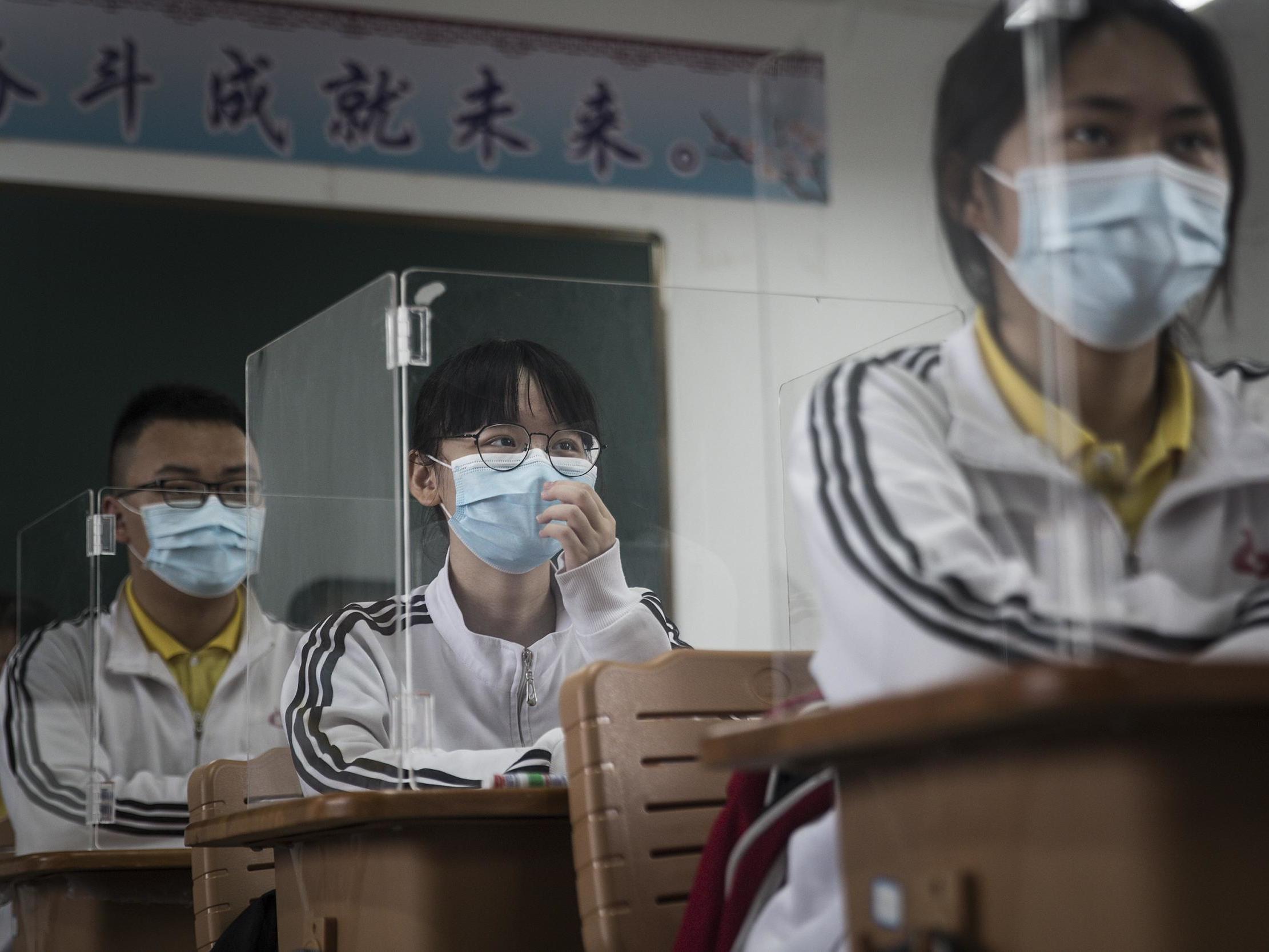Coronavirus: Wuhan reports first new cases since end of lockdown adding to fears of second wave in China
Five new locally transmitted infections linked to same residential complex in the city
Wuhan, the original epicentre of the pandemic, reported its first new coronavirus cases since lockdown was ended in April, raising concerns of a second wave of the disease in China.
Five new locally transmitted cases were reported on Monday, all of whom live in the same residential complex. One was the wife of an 89-year-old male patient reported a day earlier in the city’s first confirmed case since 3 April.
All the latest cases were previously classified as asymptomatic – people who test positive for the virus and are capable of infecting others but do not display symptoms.
China does not include asymptomatic cases in its overall tally of confirmed cases, currently at 82,918, until they exhibit signs of infection. Mainland China has reported 4,633 deaths.
Having slowly reopened schools, public transport and certain businesses in recent weeks, Wuhan’s new outbreak could delay any further easing in restrictions.
“At present, the task of epidemic prevention and control in the city is still very heavy,” said the Wuhan health authority in a statement. “We must resolutely contain the risk of a rebound.”
The city’s Dongxihu district was classified as being at a medium risk level as of Sunday afternoon, while other areas of Wuhan remain low risk.
In total, 17 new mainland cases were recorded by China’s National Health Commission on Monday – the highest daily increase since 28 April. Ten of these infections were domestic-based.
Northeastern Jilin province, which on Saturday reported a cluster of infections in one of its cities, Shulan, reported three additional local cases.
Shulan has been marked a high-risk area, the only place in China currently with that designation.
“We’re now in a ‘war-time’ mode,” said Jin Hua, mayor of Shulan, which until the weekend had reported no local cases for more than 70 days.
The city has imposed a lockdown on its 600,000 residents since the weekend, with just one member of a household being allowed out each day to buy necessities.
Nearby Liaoning and Heilongjiang provinces each reported one case, adding to worries about a resurgence of the outbreak in the region.
Of the new cases, seven were so-called imported cases in the northern Chinese region of Inner Mongolia involving travellers from overseas.
Meanwhile, the number of new asymptomatic Covid-19 cases fell to 12 on 10 May, compared with 20 reported a day earlier.
Thanks to a nationwide regime of screening, testing and quarantine, China has brought down its daily infection figures from the thousands of cases that were being recorded during the height of the pandemic in February.
However, the continuing infections point to the challenges that a number of countries are now facing as they attempt to ease lockdown and restart their economies.
In South Korea, health officials reported 34 new cases on Sunday – the first time the country’s daily tally rose above 30 in a month – after an outbreak emerged in connection with one of Seoul’s popular nightlife districts.
Of the new infections announced on Sunday, 26 were domestically transmitted infections and eight were imported cases, the Korea Centers for Disease Control and Prevention (KCDC) said.
The majority of these have been linked to nightclubs in the capital’s Itaewon entertainment neighbourhood, after a 29-year-old man visited three venues before testing positive for Covid-19 last week.

The incident has highlighted the difficulties with opening large venues, such as clubs and bars, as health authorities have scrambled to contact nearly 2,000 people who could have had contact with the patient, according to Korea’s Yonhap News Agency.
Park Won-soon, Seoul’s mayor, has since ordered more than 2,100 nightclubs, hostess bars and discos to close and urged others to enforce anti-virus measures in response to the spike in cases.
“Carelessness can lead to an explosion in infections,” Mr Park warned.
Additional reporting by agencies
Join our commenting forum
Join thought-provoking conversations, follow other Independent readers and see their replies
Comments
Bookmark popover
Removed from bookmarks